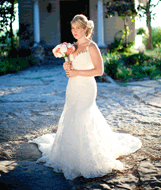10 Jul
Angels
I thought I’d pull from Formspring for a short Sunday post today. That’s the great thing about Formspring, it’s an overflowing well of questions that you actually care about (well I assume you care since you asked them). This was asked about 2 months ago:
Source
Do LDS believe in angels?
The first thing I did was go to a Catholic Encyclopedia to try to better understand what a different denomination of Christians has said about angels. Based on this article, I understand the (simplified) Catholic definition to be either a deceased human messenger, or a divine being that is not a human.
Latter Day Saints believe that angels are mortals, though they can sometimes be in different stages of their development in terms of the Plan of Salvation. They can be spirits who have not yet received bodies who are still residing in the pre-mortal life stage (haven’t come to earth yet, but will). They can be post-mortal spirits, those who have been to earth but have passed away. They can also be translated beings (taken up into heaven without death) or resurrected being (resurrected with Jesus Christ at the time of the crucifixion).
We believe angels have the form of man. They do not have wings. The angel that appeared to Daniel was in the “appearance of a man”.
Angels act as messengers from God, played a large part in the restoration of The Church of Jesus Christ, and to warn and protect mortals. “There shall no evil befall thee, neither shall any plague come nigh thy dwelling. For he shall give his angels charge over thee, to keep thee in all thy ways. They shall bear thee up in their hands, lest thou dash thy foot against a stone” (Ps. 91:10-12)


 I'm a farm-raised almost-crunchy stroller-pushing picture-taking lifestyle-blog-writing gastronomy-obsessed divine-seeking thrift-store-combing cheese-inhaling pavement-pounding laughter-sprinkling lover of individuality and taking chances.
I'm a farm-raised almost-crunchy stroller-pushing picture-taking lifestyle-blog-writing gastronomy-obsessed divine-seeking thrift-store-combing cheese-inhaling pavement-pounding laughter-sprinkling lover of individuality and taking chances.











I had a really fantastic institute class on angels a few years ago. LDS theology actually also includes a lot of other angelic beings in addition to the type you mentioned. We believe in seraphim, cherubim, thrones, dominions, principalities, exaltations, powers, etc. They all have roles in serving God and carrying out His will. And it makes the promises we receive in our blessings as Latter Day Saints really remarkable when we learn that those dominions, principalities, etc. that we will inherit aren’t a political/governing type inheritance, but a celestial one that makes us more like our Father. I’m not sure that many members actually know or realize this.
Also, this makes our angelic theology fairly similar to that of Catholicism, but there are differences.
Reply
Gogo Reply:
July 10th, 2011 at 10:15 am
p.s. The wikipedia article on angelic hierarchy is an easy place to start if you want to find out more about the roles of these different beings - though not all of it aligns with LDS theology (i.e. archangels).
http://en.wikipedia.org/wiki/Christian_angelic_hierarchy
Reply
Jenna Reply:
July 11th, 2011 at 12:02 am
This is what I get for trying to write a “quick Sunday post”. I wanted to answer to the idea of “guardian angels” but I didn’t take the time to think about how much more complicated it is! I hope some others read your comment.
Reply
An interesting note about angel wings: the earliest depictions we can find of angels do not have wings. The word “angel” is derived from the Greek word for “messenger”, and in Greek symbolism, messengers have wings (think of Hermes, the Greek messenger god who is depicted with wings on his helmet and sandals). In Eastern Orthodoxy, St. John the Baptist is also depicted with wings, because he is the messenger for Christ as described in Mark 1:2 and Malachi 3:1.
In both Catholicism and Orthodoxy, at least, angels do not have any form at all! They are often referred to as the “Bodiless Powers”. However, angels can reveal themselves to us, and will typically take on the form of man. Would this be the same in the LDS Church? Pre-mortal souls don’t actually have bodies yet, right? Do those who have died immediately regain their bodies, or are they currently bodiless as well?
Reply
Jenna Reply:
July 11th, 2011 at 12:05 am
Interesting!
No, angels (at least the kind I talked about in this post)do not take on the form of a man, it’s what they have. Pre-mortal souls don’t have bodies, but they do have the form of a man/woman.
Those who have died do not regain their bodies until they are resurrected.
Reply
Just to clarify, Catholics do not believe that angels are deceased humans. They are entirely separate beings from man. Other Christian denominations might believe that though; I’m not sure.
Reply
Kimberly Reply:
July 10th, 2011 at 12:26 pm
The only reason I did not point this out is that I do have family members who believe that my departed great grandmother is acting as a guardian angel for us. However, if you were to ask them if she is an angel or a saint, they would say she’s a saint. But this might be because nobody says “guardian saint”.
Reply
Jenna Reply:
July 11th, 2011 at 12:23 am
I tried really hard to understand that article, but I wasn’t quite getting there. So Catholics believe that Satan was created as an angel, a different being from man entirely, but he turned into a bad one?
And if the answer to that is yes, AND Catherine’s statement below is true, how can a angel fall if he doesn’t have free will?
(Please take this as a curious question trying to clarify not trying to be combative. Text is so frustrating that way.)
Reply
Catherine Reply:
July 11th, 2011 at 8:59 am
Let me start by apologizing now if there are strange typos, I’m writing this from my phone!
I asked my husband this question for you. He went to Catholic high school and did his senior thesis in college on angels, so he knows his stuff. He said that unlike humans, who are created equally, angels have hierarchies. Lucifer, the light bearer, was God’s favored creation prior to man. He was the greatest, most beautiful thing God created, and as such was granted the greatest gift: free will. Prior to his fall, he was second only to God. Unfortunately, he also had pride, and eventually he started to believe that he was greater than God and rebelled against Him.
Husband says: “There are references scattered throughout the Old and New Testaments (as well as other religious texts) to similar themes of an angel cast from God’s presence, ‘the fallen one’, that kind of thing. The problem is that they are all vague, poorly interpreted, or seemingly contradictory. Without being a serious theologist (or angelologist, and yes, that is a real field of study) I can’t say for sure where it all comes from and what is accepted by all faiths. The author of Paradise Lost studied these sacred texts in order to write his poem, so it carries over many if the themes, which is why his poem tends to be the greatest source for Christian tradition as far as angels are concerned. I guess the long story short is that angels aren’t created equal.”
I hope that helped and made sense!
Reply
Jackie Reply:
July 11th, 2011 at 10:05 am
Pretty simply we believe that angels do have free will even if they are not man.
Reply
Kimberly Reply:
July 11th, 2011 at 11:14 am
I agree with Jackie, angels definitely do have free will according to the Catholic Church. From Paragraph 392 of the Catechism:
“Scripture speaks of a sin of these angels. This ‘fall’ consists in the free choice of these created spirits, who radically and irrevocably rejected God and his reign.”
It wasn’t just Satan who fell, but also the other angels who chose to follow him.
http://www.scborromeo.org/ccc/p1s2c1p7.htm#391
Reply
pierzstyx Reply:
July 13th, 2011 at 2:16 pm
In regards to Catholicism and angels I do think the confusion comes from the meaning of the word “angel”. Catholicism has a long history of post-mortal humans providing intercessory between living mortals and God/Heaven, working miracles, and appearing to the faithful. This is easily seen in the many beliefs concerning the various Catholic Saints. For example stories abound of the Virgin Mary appearing to various people, granting visions, and working incredible miracles at the behest of God. In this she acts as a “angel” i.e. a messenger from God empowered to do his will, and is very much a post-mortal person. Many of the Saints do similar things. In this way Catholics do believe in angels who once were human in addition to the traditional image of angels such as Michael or Gabriel.
Reply
“Based on this article, I understand the (simplified) Catholic definition to be either a deceased human messenger, or a divine being that is not a human.”
Going back to my years of Catholic education, it’s definitely more of the second than the first. Humans are humans, angels are angels. They’re pure beings created by God, but they don’t have the same freedoms (i.e. Free Will) as humans do.
Reply
Turtle Reply:
July 10th, 2011 at 11:35 am
Yes, this is my understanding as well. God created angels before humans- hence the story of the fallen angels, most particularly Lucifer, who rebelled when learning of God’s plan to create and eventually taken the form of a lesser being, ie. humans.
Reply
Jenna Reply:
July 11th, 2011 at 12:25 am
Thanks Catherine! I posed a question above that I’d love to hear an answer to if you have the time.
Reply
We had a brief discussion about angels in our Sunday School lesson, so I thought I’d share my two cents. I’m reminded of Jeffrey R. Holland, of the Quorum of the Twelve Apostles, who gave a talk in General Conference back in 2008 entitled “The Ministry of Angels.” It’s a great discourse on the LDS doctrine surrounding angels, but I particularly wanted to call attention to this paragraph:
“I have spoken here of heavenly help, of angels dispatched to bless us in time of need. But when we speak of those who are instruments in the hand of God, we are reminded that not all angels are from the other side of the veil. Some of them we walk with and talk with—here, now, every day. Some of them reside in our own neighborhoods. Some of them gave birth to us, and in my case, one of them consented to marry me. Indeed heaven never seems closer than when we see the love of God manifested in the kindness and devotion of people so good and so pure that angelic is the only word that comes to mind.”
The full content of the talk can be found here.
Reply
Jenna Reply:
July 11th, 2011 at 12:34 am
I love this reminder!
Reply
I’m gonna have to agree with previous posters that most Christians today (not sure about generations past) believe that angels are a separate order of being than humans, not deceased humans. Humans going to heaven and becoming “angels” is sort of a Christian fairy tale, not really good theology.
Also, if you don’t believe angels have wings, what do you make of Isaiah 6:2? - “Above it [the throne of the LORD] stood the seraphims: each one had six wings; with twain he covered his face, and with twain he covered his feet, and with twain he did fly.”
I think angels are beings of spirit that can appear in a corporeal form - although I suppose don’t you all not believe in any pure spirit beings? I don’t remember for sure but don’t you believe God the Father has a body? Sorry, it’s late.
Reply
Jenna Reply:
July 11th, 2011 at 12:37 am
Gogo actually answered this above. Basically I was trying to whip this post out really fast, and I didn’t take the time to consider all angles!
We believe that God the Father has a body, but that’s because he is resurrected (Jesus also has one). There are lots of pure spirit beings, either they haven’t come to earth yet, or they have but they haven’t been resurrected.
Reply
Jackie Reply:
July 11th, 2011 at 10:03 am
God the Father was resurrected? I haven’t heard this before. Can you explain it?
Reply
Jenna Reply:
July 11th, 2011 at 10:54 am
I probably should have been a bit more careful mentioned this because it’s vague and not a doctrine that has been expounded on very much.
Essentially we believe that it’s is an eternal feedback loop of progression. You live, you die, you are resurrected, you are exalted (if you deserve it), you create spirit children, they live, they die, they are resurrected, they are exalted if they deserve it, and on and on. All of this is based on worthiness.
I am in the camp of those who believe in “infinite regress”, though there are some that think a little bit differently. http://en.fairmormon.org/Mormonism_and_the_nature_of_God/Infinite_regress_of_Gods
Reply
Amy Reply:
July 12th, 2011 at 12:46 pm
In reading the article, do I understand this right? LDS believe that in the same way their current Heavenly Father passed through the stages of mortality as defined by LDS theology, a previous deity did the same thing? Meaning that some time, long, long, long ago, Heavenly Father was a different deity that the one currently existing/reigning today? Would that put the previous Heavenly Father deity in a different position in the spirit world as of today?
Reply
Jenna Reply:
July 13th, 2011 at 8:35 pm
Well our Heavenly Father hasn’t changed from one person to another. He conceived us, literally, with His wife, our Heavenly Mother. And though it isn’t firm doctrine, as I said above I am one of those that believe in eternal progression in both directions. God achieved exaltation, and that is why it is His goal for us to achieve the same. He wants us to have everything He has.
As far as previous gods, and what they might be doing, it’s too much for me to think about. How can anything truly be endless? I just try to worry about the things I feel I can grasp.
Reply
pierzstyx Reply:
July 13th, 2011 at 2:27 pm
As to LDS belief and angels and wings, we believe that the imagery used with specific angels having wings is symbolic.The Prophet Joseph Smith said that “their wings are a representation of power to move to act.” The symbol means a few different things, the simplest meaning being that wings symbolize the angelic beings ability to move in celestial spheres and worlds above mortals power. Isaiah 6:2 is actually an excellent example of the symbolic and not literal meaning to these wings. Each seraphim had six wings, yet only one set actually allowed them to “fly”. The other two sets covered their face and feet. The set allowing them to fly would be symbolic of their ability to move and act in Heaven. The wings covering their face and feet I am not sure what that would represent symbolically for sure, so I will withhold on that. But the usage in Isaiah to a Latter-day Saint would show the symbolic nature of angels wings and not their literal nature.
Reply
Replying now!
Reply
7I did a double-or-triple-take with that picture. That angel has your face! I keep scrolling up to it to confirm my first impression, I wonder if anyone else sees it?
Reply
8